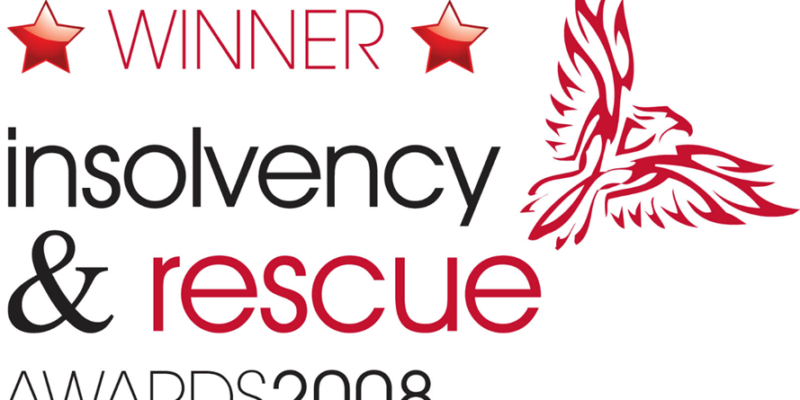- RT @ramseyshow: RT @E_C_S_T_E_R_I_: "Stupid has a gravitational pull." -D Ramsey as heard n NPR. I know many who have not escaped its orbit. #
- @BudgetsAreSexy KISS is playing the MINUTE state fair in August. in reply to BudgetsAreSexy #
- 3 year old is "reading" to her sister: Goldilocks, complete with the voices I use. #
- RT @marcandangel: 40 Useful Sites To Learn New Skills http://bit.ly/b1tseW #
- Babies bounce! https://liverealnow.net/hKmc #
- While trying to pay for dinner recently, I was asked if other businesses accepted my $2 bills. #
- Lol RT @zappos: Art. on front page of USA Today is titled "Twitter Power". I diligently read the first 140 characters. http://bit.ly/9csCIG #
- Sweet! I am the number 1 hit on Ask.com for "I hate birthday parties" #
- RT @FinEngr: Money Hackers Carnival #117 Wedding & Marriage Edition http://bit.ly/cTO4FU #
- Nobody, but nobody walks sexy wearing flipflops. #
- @MonroeOnABudget Sandals are ok. Flipflops ruin a good sway. 🙂 in reply to MonroeOnABudget #
- RT @untemplater: RT @zappos: "Do one thing every day that scares you." -Eleanor Roosevelt #
You’re not alone: Help with Bankruptcy & Debt
 Frequently regarded as an indication of personal failure, bankruptcy is still today widely considered a highly sensitive topic. Many will even feel uneasy speaking about their debt problems with close relatives and friends. If you, too, are facing serious debt issues and are in need of help, rest assured you are not the only one afraid of sliding into bankruptcy. In fact, thousands of households in the UK are threateningly close to insolvency and most are experiencing the exact same feelings of shame and despair. This perfectly understandable reaction has, meanwhile, unfortunately overshadowed the fact that there are hands-on practical steps especially designed to help you resolve your debt situation.
Frequently regarded as an indication of personal failure, bankruptcy is still today widely considered a highly sensitive topic. Many will even feel uneasy speaking about their debt problems with close relatives and friends. If you, too, are facing serious debt issues and are in need of help, rest assured you are not the only one afraid of sliding into bankruptcy. In fact, thousands of households in the UK are threateningly close to insolvency and most are experiencing the exact same feelings of shame and despair. This perfectly understandable reaction has, meanwhile, unfortunately overshadowed the fact that there are hands-on practical steps especially designed to help you resolve your debt situation.
There is a good reason why addressing the issue of bankruptcy has an urgent ring to it. Recent statistics indicate a steady rise of individual company insolvencies in the UK, particularly since the 1990s. According to the British Insolvency Service, the rate of bankruptcy on an individual level has risen from a total of 24,441 in 1997 to staggering 106,645 in 2007 in England and Wales. Alarmingly, the peak doesn’t seem to have been reached yet. As respected online-service ‘This is Money’ reports, ‘record numbers of people were declared insolvent in England and Wales’ in 2010, further noting that ‘an all-time high of 135,089 people were declared insolvent in 2010—0.7% up on the total for 2009.’ As you can gather from these numbers, you are certainly not alone with your debt problems: Around 140,000 adults are facing bankruptcy as a direct consequence of mishandling their debt issues, which translates to 385 new cases per day. It has already been pointed out that ‘the number of victims will be enough to fill both the London 2012 Olympic stadium and the Emirates Stadium.’
So, if you’re facing bankruptcy, there’s no need to feel ashamed. By taking an active stance and addressing your debt issues, you may even be able to avert insolvency altogether. With years of experience and several distinctions to our credit, the Debt Advisory Line have established themselves as leading experts in the field of debt management. We’ve already helped thousands of individuals and households who thought bankruptcy was their only option. Settling debt issues is our forte – and you shouldn’t settle with anything less.
This post brought to you by Debt Advisory Line.
How to Prioritize Your Spending
Don’t buy that.
At least take a few moments to decide if it’s really worth buying.
Too often, people go on auto-pilot and buy whatever catches their attention for a few moments. The end-caps at the store? Oh, boy, that’s impossible to resist. Everybody needs a 1000 pack of ShamWow’s, right? Who could live without a extra pair of kevlar boxer shorts?
Before you put the new tchotke in your cart, ask yourself some questions to see if it’s worth getting.
1. Is it a need or a want? Is this something you could live without? Some things are necessary. Soap, shampoo, and food are essentials. You have to buy those. Other things, like movies, most of the clothes people buy, or electronic gadgets are almost always optional. If you don’t need it, it may be a good idea to leave it in the store.
2. Does it serve a purpose? I bought a vase once that I thought was pretty and could hold candy or something, but it’s done nothing but collect dust in the meantime. It’s purpose is nothing more than hiding part of a flat surface. Useless.
3. Will you actually use it? A few years ago, my wife an cleaned out her mother’s house. She’s a hoarder. We found at least 50 shopping bags full of clothes with the tags still attached. I know, you’re thinking that you’d never do that, because you’re not a hoarder, but people do it all the time. Have you ever bought a book that you haven’t gotten around to reading, or a movie that went on the shelf, still wrapped in plastic? Do you own a treadmill that’s only being used to hang clothes, or a home liposuction machine that is not being used to make soap?
3. Is it a fad? Beanie babies, iPads, BetaMax, and bike helmets. All garbage that takes the world by storm for a few years then fades, leaving the distributors rich and the customers embarrassed.
4. Is it something you’re considering just to keep up with the Joneses? If you’re only buying it to compete with your neighbors, don’t buy it. You don’t need a Lexus, a Rolex, or that replacement kidney. Just put it back on the shelf and go home with your money. Chances are, your neighbors are only buying stuff so they can compete with you. It’s a vicious cycle. Break it.
5. Do you really, really want it? Sometimes, no matter how worthless something might be, whether it’s a fad, or a dust-collecting knick-knack, or an outfit you’ll never wear, you just want it more than you want your next breath of air. That’s ok. A bit disturbing, but ok. If you are meeting all of your other needs, it’s fine to indulge yourself on occasion.
How do you prioritize spending if you’re thinking about buying something questionable?
Vacation, Shmaycation, Staycation?
Last week was our family vacation. This year, we decided to keep it cheap, since we raided our savings a few months ago to cover my son’s vision therapy.
Here’s what we did:
Friday (Yes, I started vacation on a Friday): My wife worked a half day, then we drove to visit my parents, roughly 120 miles north of our house. $110 for gas, round-trip, and $10 for drive-through lunch. $120 total.
Saturday: We went to the county fair and Dairy Queen. $18 for admission. $30 for ride tickets. $35 for food and ice cream. The ride tickets were totally worth it. My son and I discovered that he can handle the fun rides, which thrills me. $83 total.
Sunday: We had a picnic at the bottom of Inspiration Peak, the third highest point in Minnesota, followed by a hike to the top. That evening, my brother, his wife, my wife, and I tricked my parents into babysitting and escaped for several hours of adult time. After a couple of overpriced drinks at a crap restaurant, we went somewhere nicer and cheaper. A nice dinner, a few drinks, and a round of drunken go-karts later, we spent $90 for the evening.
Monday: Back to the go-kart park for the afternoon, and the return drive home in the evening. The go-kart park included 3 rounds of go-karts, mini-golf, and a round of bumper boats. $40.
Tuesday: A hands-on kids museum, a natural history museum that was hosting a portable planetarium, and a teppenyaki restaurant. We used museum passes for the museums, so this cost a total of $160. By far, the most expensive part was the restaurant. The museums cost a combined $30.
Wednesday: We spent the day at the Monster Mall’s indoor theme park, Nickelodean Universe, where we tested my son’s ability to handle the fun rides for $70. Then we ate at the Rainforest Cafe for $116, and we got my wife’s anniversary present, a family portrait at an “old time” photo studio. We chose a 1920s theme. I must say, I look dashing in a zoot suit. $260 total.
Thursday: My wife had to work on Thursday because she was short of vacation time, so I had the brats to myself. We went to a pick-your-own apple orchard where we picked a large bag of apples, a bottle of real, locally-made maple syrup and 3 cookies-on-a-stick. Afterwards, Brat #1 and I went to a Chinese buffet and the comic book store while the women-folk went to a saddle-club meeting. $60 total.
Friday: We had a fried chicken picnic at the largest playground in the area, and otherwise took it easy. $12.
Saturday: On Saturday, my girls rode in a horse show for the saddle club while my wife put in her volunteer work hours. Registration and the food for the potluck ran $40.
Sunday: I had to teach a gun class, so I made money, instead of spending it. My wife and kids played around the house.
Total, our vacation cost us $865, for 10 days of memories. If we would have skipped the restaurants, it would have cost $465, but we wanted those experiences, too. Our vacation fund has $906 in it, so we did all right.
Credit Peril
When my mother-in-law died, we went through all of her accounts and paid off anything she owed.
The Discover card she’d carried since the 80s–a card that had my wife listed as an authorized user–had a balance of about $700. We paid that off with the money in her savings account. They cashed out the accumulated points as gift cards and closed the account.
A few months ago, we decided it was time to buy an SUV, to fit our family’s needs. We financed it, to give us a chance to take advantage of a killer deal while waiting for the state to process the title transfer on an inherited car we have since sold.
Getting good terms was never a worry. Both of us had scores bordering on 800. Since our plan was to pay off the entire loan within a few months, we asked for whatever term came with the lowest interest rate.
Then the credit department came back and said that my wife’s credit was poor. I chalked it up to a temporary blip caused by closing the oldest account on her credit report and financed without her. No big deal.
Since we decided to rent our my mother-in-law’s house, we’ve discussed picking up more rental properties. That’s a post for another time, but last week, we went to get pre-approved for a mortgage. During the process, the mortgage officer asked me if my wife had any outstanding debt that could be ignored if we financed without her.
Weird.
A few days ago, we got the credit check letter from the bank. Her credit score? 668.
What the heck?
I immediately pulled her free annual credit report from annualcreditreport.com, which is something I usually do 2-3 times per year, but had neglected for 2012.
There are currently two negatives on her report.
One is a 30 day late payment on a store card in 2007. That’s not a 120 point hit.
The other is an $8 charge-off to Discover. As an authorized user. On an account that was paid.
Crap.
We called Discover to get them to correct the reporting and got told they don’t have it listed as a charge-off. They did agree to send a letter to us saying that, but said they couldn’t fix anything with the credit bureaus.
Once we get that letter, it’s dispute time.
7 Benefits of Investing Internationally
 When it comes to financial investments, it’s always better to go with an informed decision than one that relies merely on chance – besides, gambling only works when luck’s on your side. Fortunately, international investments are a financially secure and reliable form of investing as long as you know your limitations. So, in keeping with the idea of sound financial decisions, here are seven benefits of investing internationally:
When it comes to financial investments, it’s always better to go with an informed decision than one that relies merely on chance – besides, gambling only works when luck’s on your side. Fortunately, international investments are a financially secure and reliable form of investing as long as you know your limitations. So, in keeping with the idea of sound financial decisions, here are seven benefits of investing internationally:
Diversification of Your Funds
A diversified financial portfolio gives investors options in terms of economic fluctuations and, by investing internationally, your finances will have alternative sources of stability. In other words, if your money is spread out among various countries, then an economic crash in one country won’t affect other investments.
It goes without saying that with diversification also comes a learned understanding of various global economies and markets, but with the help of a financial adviser or with a little research, you’ll have the ability to make informed global investments, which is always better than the “eggs in one basket” approach.
Investing Abroad Means More Options
Just like there’s diversification with investing internationally, there are also many options when it comes to the way you want to invest your finances. And, with international investing growing in popularity, the investment options available in today’s market are quickly becoming commonplace.
Three of the most popular forms of international investments are mutual funds, exchange traded funds (ETFs), and American depository receipts (ADRs). And, although mutual funds are a common form of investment, ETFs and ADRs trade much like stocks and therefore take a little more financial knowledge to navigate.
International Protection and Confidentiality
If you’re the type of investor that’s worried about financial scares associated with foreclosures and lawsuits, investing internationally has an added advantage of asset protection. With investing abroad, many foreign financial institutions are able to protect your investments from seizure and other threats.
Likewise, investing internationally also comes with confidentiality concerning your finances. International financial institutions are not legally required to divulge your monetary details to anyone. Confidentiality isn’t to say that international investments are exempt from legalities, but they’re entitled to more freedoms.
Investment Growth on an International Level
In terms of household incomes, import/export strengths, younger working populations, and the lean toward free-market economic policies, investing internationally has the potential for more growth than investing in the United States alone, which translates to an increase in return potential in overseas investments.
In fact, according to the International Monetary Fund, the United States is expected to fall below the rest of the world for the next two years when it comes to economic growth. Because of this, companies like Fisher Investments Institutional Group are strategizing toward international investments in strong economic climates across the world.
Currency Diversification Strengthens Portfolios
Much like international investing gives your portfolio safety in numbers as opposed to having all assets invested in one country’s economy, so do currency differences from country to country. In relation to the US dollar, many countries across the world have stronger currencies, which helps boost returns over time.
The flip side of this coin is the idea that fluctuations in currency strengths can just as easily work against your portfolio as they can strengthen it. It’s wise to keep an eye on international currency rates and how they compare to the US dollar, but never invest solely based on rates as a country’s currency can drop in strength overnight.
A Reduction in Taxes
Otherwise known as tax havens, many countries across the world offer attractive tax incentives to foreign investors. These incentives are meant to strengthen other country’s investing environments as well as attract outside wealth.
These tax incentives are particularly attractive to US investors due to the increasingly high taxes in the country. As a result, the United States government is creating more defined restrictions and laws when it comes to international investment tax incentive regulations.
Investment Potential in the United States is Dwindling
Because the United States has both the world’s largest economy and stock market, financial opportunities are almost maxed out due to over-investing. On the other hand, emerging markets in other countries are growing in size and strength, which is quickly resulting in stronger economies and more investment opportunities.
By ignoring the potential of other world markets, you’re also ignoring global economies and stock markets that offer unforeseen investment potential when compared to the United States, which is something every investor should keep in mind.
So, from portfolio diversification to investment growth, investing internationally is a great way to expand your financial horizons.
This is a guest post.







